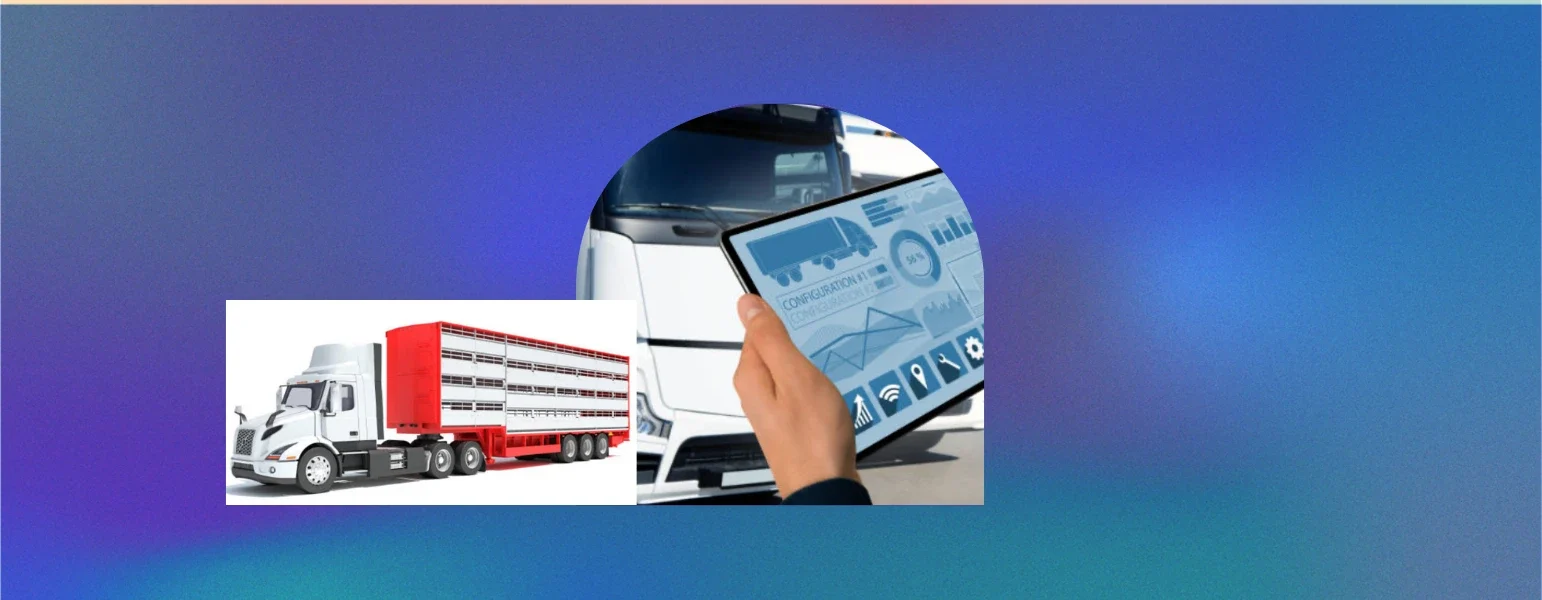

- BLOG
How Route Optimization Software Maximizes Multi-Compartment Truck Utilization
Published: August 29, 2025
Route Optimization API
Optimize routing, task allocation and dispatch
Distance Matrix API
Calculate accurate ETAs, distances and directions
Directions API
Compute routes between two locations
Driver Assignment API
Assign the best driver for every order
Routing & Dispatch App
Plan optimized routes with 50+ Constraints
Trucking
Get regulation-compliant truck routes
Fleet Management
Solve fleet tracking, routing and navigation
Middle Mile Delivery
Optimized supply chain routes
Construction
Routes for Construction Material Delivery
Oil & Gas
Safe & Compliant Routing
Food & Beverage
Plan deliveries of refrigerated goods with regular shipments
Table of Contents

In the modern logistics and supply chain environment, efficiency isn’t just about delivering faster, it’s about delivering smarter. Multi-compartment truck offer a flexible way to transport diverse goods simultaneously, enabling businesses to reduce trips, cut fuel costs, and improve delivery accuracy. However, planning optimal routes for these trucks is highly complex due to the nature of mixed cargo and compartment-specific constraints.
That’s where route optimization software steps in by offering intelligent automation that turns logistical complexity into competitive advantage.
Multi-compartment trucks are designed with internal divisions, allowing them to transport various types of goods in different conditions in the form frozen, chilled, ambient, or dry in the same delivery cycle. They are commonly used in:
Each compartment may have unique constraints such as temperature range, cargo compatibility, access sequence, or cleaning requirements between cargo types.
Planning routes for mixed cargo is very difficult due to diversity of types of cargo, capacity of vehicles, delivery restrictions, and prevailing operational issues. Mixed cargo typically implies carrying loads with different characteristics such as size, weight, handling requirements, and destinations under a common plan of routing, considerably enhancing complexity.
Some of the key challenges could be:
Such problems usually need advanced route optimization software with the ability to handle different constraints, real-time information, and mixed fleets, along with effective coordination between technology platforms and logistics personnel.

Software solutions play a critical role in optimizing compartments, minimum empty miles, and maximum load efficiency for combined cargo logistics. Below is how softwares can provide measurable benefits in operations:
1. Compartment and Load Optimization
2. Reducing Empty Miles
3. Load Efficiency Gains
4. Real-World Impact
NextBillion.ai offers a series of cutting-edge logistics solutions that complement and directly enhance multi-compartment truck utilization by compartment optimization, reduction of empty miles, and improvement in load efficiency. A few of the highlighting capabilities aligned to your goals are:
1. Route and Load Optimization: NextBillion.ai complies with over 50 business and operational constraints such as vehicle capacities, compartment requirements, cargo types (e.g., temperature or hazard class), weight, delivery times, and legal limits, to enable precise assignment and packing of cargo to the correct compartments for each route. This ensures maximum space utilization and compliance for mixed cargo on multi-compartment trucks.
Refer Delivery Load Optimization APIs for API documentation.
2. Preplanning and Dynamic Reoptimization in Real Time: The solution enables logistics teams to preplan routes based on historical and forecast data and redesign them dynamically in real time as conditions change (e.g., new orders, congestion, or delays). Such flexibility is key to ensuring multi-compartment vehicles are fully loaded, load plans are modified economically, and idle time and partial loads are minimized.
Refer Re-Optimizing A Route Plan for API documentation.
3. Backhaul, Multi-Stop, and Scenario Planning: Advanced algorithms allow you to plan not just outbound but also backhaul (return) loads, consolidate different types of cargo, and model different routing scenarios to identify the best strategies for compartment utilization and route consolidation. This reduces empty miles, increases deliveries per vehicle, and ensures compartments are filled as much as possible on each leg of the journey.
4. Integration and Data Automation: NextBillion.ai’s APIs integrate seamlessly with your TMS, WMS, ERP, or telematics platforms for automated data exchange, live tracking, dispatch, and route updates. This streamlines the workflow from order receipt to actual compartment loading, reducing manual intervention and errors. (Example: Samsara Telematics API)
5. 3D and Customized Mapping/Visualization: The solution provides visualization of compartment assignments, stops, and routes, with mapping features tailored to complex cargo and fleet configurations. With accurate estimation and planning, logistics managers can optimize compartment loading and enforce safe and efficient packing policies.
6. Eco-Efficiency and Lower Cost: By optimizing more intelligent cargo assignment and minimizing empty miles, NextBillion.ai lowers fuel usage, trip frequency, and cost per delivery while supporting sustainability initiatives.
7. Flexible Deployment and Scalability: Designed to scale and fit many different enterprise needs, it can manage high volumes, high frequencies of schedule changes, and special needs such as cold chain or hazardous materials requiring special compartmentalization.
Route optimization software lies at the heart of realizing optimum usage of multi-compartment trucks through effectively addressing the complex constraints and operational subtleties inherent in mixed cargo logistics. Advanced platforms employ intricate algorithms to optimize load distribution, comply with compartment-specific requirements, meet multi-delivery stipulations, and dynamically react to real-time variables such as traffic or last-minute order modifications. This translates into improved load efficiency, significant reductions in empty miles, and improved overall fleet utilization, reducing costs and environmental impact while improving customer satisfaction.
NextBillion.ai is an outstanding example of a top-tier solution in this segment, offering a highly configurable Route Optimization API with the ability to handle over 50 constraints, including vehicle capacity, compartmentalized setups, types of cargo, delivery time windows, and weight limits. Its truck-specific routing feature ensures safe and compliant routes. NextBillion.ai also enables both preplanning based on historical data and real-time re-optimization of routes, permitting adaptability and resilience in dynamic logistics environments.
In short, NextBillion.ai offers a versatile, effective, and scalable route optimization solution that is crafted to tackle the intricate requirements of mixed cargo logistics for businesses that want to maximize the utilization of every compartment in multi-compartment trucks, thereby minimizing cost, emissions, and enhancing the reliability of deliveries,
Contact us today and <book a demo> to learn more about how NextBillion.ai‘s route optimization solutions maximise multi-compartment truck utilization.
Advanced software uses constraint-based algorithms considering compartment capacity, cargo types, delivery windows, and vehicle compatibility. Optimization can dynamically assign orders to specific compartments and configure routes to minimize empty miles and maximize load efficiency. Real-time adjustments accommodate changes in orders, traffic, or vehicle availability.
Yes, many systems allow dynamic customization where the number and size of compartments can be adjusted per tour to fit order mixes. Compartments can also be deactivated when not needed to optimize space and reduce wasted capacity.
Research and case studies show that multi-compartment trucks can reduce travel distances and overall transportation costs significantly (up to around 20-25%) by consolidating varied shipments and enabling more flexible routing.
Prabhavathi is a technical writer based in India. She has diverse experience in documentation, spanning more than 10 years with the ability to transform complex concepts into clear, concise, and user-friendly documentation.